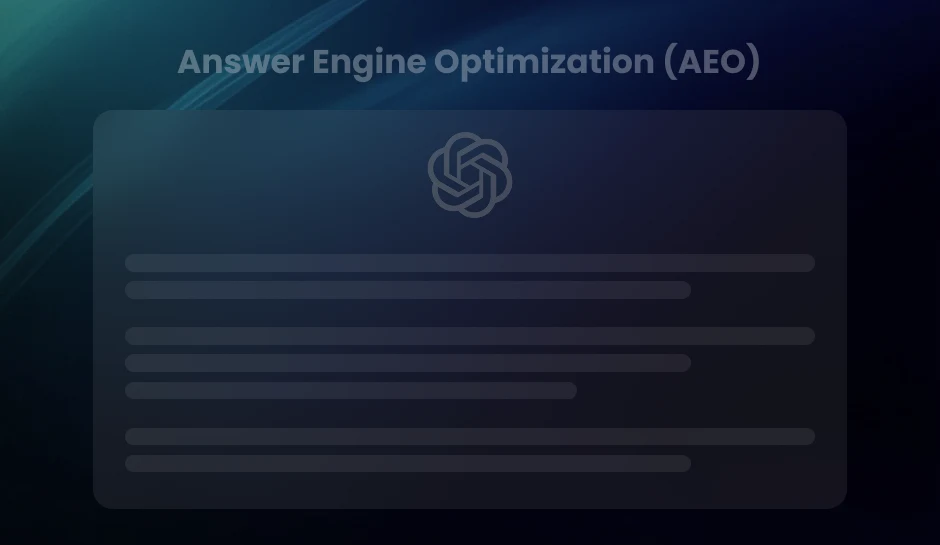
Top Performance Marketing Channels to Maximize ROI
The need for effective performance marketing channels has never been more crucial. Performance marketing goes beyond traditional methods by focusing on measurable results and tangible outcomes. By leveraging these channels, businesses can ensure accountability for every marketing dollar spent and drive substantial growth. Read on to learn how mastering performance marketing channels can unlock immense potential for businesses in the digital age.
Performance marketing channels are digital advertising avenues where businesses pay based on specific outcomes, such as clicks, leads, or sales. These channels—ranging from paid search and social media ads to affiliate marketing and influencer partnerships—offer data-driven strategies to maximize ROI. This guide explores the most effective performance marketing platforms and channels, their benefits, and how to leverage them for scalable success in the digital landscape.
The evolution of Performance Marketing channels mirrors the shift in how brands connect with audiences and measure campaign impact. Measurement is crucial, providing insights into customer behavior and campaign efficacy. Companies that harness these insights refine their strategies for improved performance. Knowing and leveraging the right marketing channels can make the difference between a flourishing business and one struggling to engage its audience.
The Indispensable Role of the Marketer in Performance Marketing
As gatekeepers of the brand’s growth, marketers must strategize meticulously to navigate the complex ecosystem of performance marketing channels.
Setting Campaign Objectives and KPIs
Marketers must define clear objectives and measurable key performance indicators (KPIs) to steer their campaigns toward success. Whether the goal is to increase website traffic, generate leads, or drive e-commerce sales, establishing well-defined targets is essential for evaluating progress and ROI.
Content Distribution Strategies
Marketers craft and execute content distribution strategies that resonate with the target audience. By identifying the most effective channels and optimizing the content for each platform, they ensure a wider reach and stronger brand engagement.
Balancing Brand Awareness with Sales Conversions
A critical challenge for marketers is finding the perfect equilibrium between raising brand awareness and driving sales conversions. They must continually adjust campaigns to maintain this balance, ensuring long-term brand equity growth while delivering immediate performance results.
Exploring Key Performance Marketing Channels
Search Engine Marketing (SEM)
Search Engine Marketing (SEM), a cornerstone of performance marketing, is a powerful channel designed to increase visibility and drive targeted website traffic. By leveraging paid search advertisements, marketers can display their offerings directly to consumers who are actively searching for related products or services.
- Keywords & CTR:
- SEM & SEO Integration:
SEM success relies on strategic keyword use and optimizing for high CTR, ensuring ad visibility and engagement.
Integrating SEM with SEO enhances search performance, combining paid and organic efforts for increased visibility and conversion rates.
Pay-Per-Click Advertising (PPC)
Understanding the nuances of Pay-Per-Click (PPC) advertising is essential for marketers eager to master performance channels. PPC campaigns can be meticulously managed and optimized to attract high-quality leads while controlling costs.
- Conversions & CPA:
- Fine-tuning PPC:
Successful PPC campaigns rely on tracking conversions and measuring CPA, ensuring positive ROI.
Continuous analysis and adjustment of PPC campaigns enhance performance, lowering costs and boosting revenues.
Social Media Advertising
Social media platforms offer a fertile ground for performance marketers, with tailored advertising solutions that can target specific demographics and interests.
- Audience Targeting:
- Engagement Metrics:
- Voice Search & Smart Speaker Ads:
Social platforms offer precise targeting, boosting engagement and conversions.
Utilize social ad engagement metrics for performance insights and optimization.
Tap into emerging trends for new advertising opportunities with unique engagement strategies and metrics.
Email Marketing
Email marketing remains a direct and cost-effective channel for reaching customers. When executed correctly, it enables personalized communication that can lead to high engagement rates.
- Email Engagement:
- Performance Tracking:
- Automation Tools:
Curated email lists enable direct engagement, fostering loyalty and repeat business.
Monitor open and click-through rates for campaign effectiveness insights.
Streamline email campaigns with automation, tailoring messages to customer behavior for enhanced impact and efficiency.
Affiliate Marketing
In Affiliate Marketing, partners or ‘affiliates’ promote a company’s products or services, earning commission for each sale or action completed by the consumers they refer.
- Affiliates in Performance Marketing:
- Tracking and Rewards:
- Brand Growth Balance:
Affiliates drive scalable, performance-based marketing efforts.
Effective affiliate programs rely on robust tracking for transparent, equitable compensation.
Maintain focus on long-term brand growth alongside short-term sales from affiliate marketing.
Content Marketing
Content Marketing focuses on creating valuable, relevant content to attract and retain a clearly defined audience. This strategic approach can significantly boost a brand’s online presence and search rankings.
- Performance-Driven Content:
- Content & SEO:
- Measuring Success:
Craft content to drive specific audience actions, ensuring it’s informative and action-oriented.
Quality, keyword-rich content is essential for attracting organic traffic and improving SEO.
Analyze user engagement and conversion rates to refine content strategy for ongoing success.
Interactive Marketing
Interactive marketing fosters engagement by allowing users to actively participate in the marketing experience. It includes quizzes, polls, interactive videos, and augmented reality (AR) experiences, offering a personalized approach to consumer interactions.
- Interactive content captures attention and encourages higher participation.
- AI-driven tools tailor interactive experiences based on user preferences.
- Well-designed interactive campaigns drive conversions by keeping users engaged and invested.
What Ad Formats Can You Use on Performance Marketing Channels?
Selecting the right ad formats is crucial in performance marketing to optimize engagement, reach, and return on investment. Different formats cater to varying user behaviors, ensuring ads reach the right audience effectively.
Video and Connected TV (CTV) Ads
Video ads dominate digital advertising due to their ability to deliver impactful messages in a short span. Connected TV (CTV) expands this reach by delivering video ads on streaming platforms.
- Cost Per View (CPV): Advertisers pay when a user watches a video ad for a minimum duration, ensuring they receive visibility before payment.
- Cost Per Completed View (CPCV): Charges are applied only if the user watches the entire ad, making it a performance-focused pricing model.
Programmatic Media Buying
Programmatic media buying uses AI-driven automation to purchase ad inventory in real time, precisely targeting specific audiences. This ensures higher efficiency in ad spending and better personalization.
- Real-Time Bidding (RTB): Advertisers bid for ad placements in milliseconds, ensuring the most cost-effective reach.
- Audience Segmentation: AI analyzes user behavior to deliver ads to the most relevant audiences.
- Cross-Device Targeting: Ensures consistent messaging across mobile, desktop, and CTV.
- Performance Optimization: AI continuously adjusts bids and placements to maximize conversions.
Display Advertising & Programmatic Display Advertising
Display ads appear on websites, apps, and social media in formats such as banners, rich media, and native ads. Programmatic display advertising automates ad placements based on user behavior.
- Cost Per Click (CPC): Advertisers pay only when a user clicks the ad, ensuring that the budget is spent on engaged audiences.
- Cost Per Thousand Impressions (CPM): Advertisers pay for every 1,000 ad impressions, making it ideal for brand awareness campaigns that prioritize visibility.
Connected TV Advertising
Connected TV (CTV) advertising blends the impact of traditional television with digital marketing precision. It enables brands to reach highly targeted audiences through streaming services and smart TVs.
Benefits of CTV Advertising
- Higher Engagement: Viewers are more likely to watch CTV ads compared to traditional TV commercials.
- Advanced Targeting: Advertisers can use first-party data, behavioral insights, and AI-driven algorithms to reach specific demographics.
- Flexible Pricing Models: Options like Cost Per View (CPV) and Cost Per Completed View (CPCV) ensure advertisers pay based on viewer engagement.
Advanced Performance Marketing Strategies
Adopting progressive campaign strategies and implementation approaches is essential to excel in performance marketing. Exploring advanced channels and techniques can significantly elevate your marketing performance.
Influencer Marketing
- Impact on Purchase Decisions:
- Performance Measurement:
- Finding the Right Influencers:
Influencers shape consumer attitudes and drive sales through endorsements.
Monitor engagement, conversion, and ROI metrics to assess influencer collaboration success.
Partner with influencers whose followers align with your target demographic.
Video Advertising
- Engaging Audiences:
- Performance Metrics:
- Mobile Optimization:
Incorporating high-quality video editing ensures that ads are polished and visually compelling, enhancing viewer engagement and retention.
Analyze view count, watch time, and click-through rate to gauge video ad effectiveness.
Optimize campaigns for mobile audiences to leverage the increasing video consumption on mobile devices.
Programmatic and Native Advertising
- Automation Advantage:
- Subtle Effectiveness:
Utilize technology to automate ad buying and placement for more personalized targeting.
Native advertising seamlessly integrates with user experiences, yielding higher engagement rates.
Retargeting/Remarketing
- Improving Conversion Rates:
- Best Practices:
Retargeting keeps your brand at the top of your mind by serving ads to previous site visitors who didn’t convert.
Strategic ad placement, personalized messaging, and optimal frequency enhance retargeting effectiveness.
Conversion Rate Optimization (CRO):
- Boosting Landing Page Performance:
- Impact on Marketing Performance:
A/B testing, clear call-to-actions, and user-experience improvements optimize landing page performance.
The CRO plays a crucial role in the marketing funnel, directly influencing prospects’ conversion into loyal customers.
Incorporating Mobile and Emerging Technologies into Performance Marketing
Performance marketing continues to evolve rapidly with the integration of new technologies. Recognizing and leveraging these innovations can give marketers a significant edge in a competitive digital landscape. As consumer behavior shifts towards mobile and voice-activated devices, it’s essential for performance marketing strategies to adapt accordingly.
The Steady Ascendancy of Mobile Advertising
Smartphones’ prevalence has dramatically altered how consumers engage with content and make purchase decisions. Mobile advertising now stands as a cornerstone of effective performance marketing campaigns. Marketers must consider mobile-centric tactics, such as optimizing for mobile search, utilizing location-based targeting, and creating mobile-friendly landing pages that offer seamless user experiences. Additionally, in-app advertisements and the rise of mobile commerce (m-commerce) present golden opportunities for reaching potential customers personally and effectively.
Trends in Voice Search and Implications for Performance Marketing
- Voice-activated assistants like Amazon’s Alexa, Google Assistant, and Apple’s Siri are changing how consumers find and consume information. As more households adopt smart speakers and voice-enabled devices, searches become more conversational.
- Marketers must pivot by optimizing content for voice search, focusing on natural language processing and long-tail keywords that align with typical spoken queries.
- Businesses looking to stay ahead of the curve are now integrating voice search strategies into their performance marketing plans to capture this burgeoning market.
Benefits of Performance Marketing
Performance marketing offers businesses measurable results, data-driven decision-making, and optimized ad spending. By leveraging advanced strategies, brands can scale their campaigns effectively while maintaining budget control.
1. Cost-Effectiveness
Performance marketing ensures advertisers only pay for specific actions, such as clicks, conversions, or views. This approach minimizes wasteful spending and maximizes return on investment (ROI). A performance marketing platform helps track and optimize spending in real time.
2. Targeting Capabilities
Advanced audience segmentation allows brands to reach potential customers based on demographics, interests, and behaviors. Advertisers can refine audience targeting and improve marketing channel performance by using performance marketing automation.
3. Risk Mitigation
Unlike traditional advertising, performance marketing focuses on measurable outcomes. Since advertisers pay only when a specific action occurs, they reduce financial risks and allocate budgets efficiently across performance marketing campaigns.
4. Scalability
With digital advertising tools, businesses can scale campaigns up or down based on performance. A performance marketing platform enables automated adjustments, ensuring ads reach the right audience without overspending.
5. Flexibility
Performance marketing allows brands to experiment with different performance marketing channels, creatives, and ad formats. Advertisers can optimize campaigns in real time, improving overall effectiveness while adapting to market trends.
Crafting a Successful Performance Marketing Campaign
Launching an effective performance marketing campaign requires precision, adaptability, and continual optimization. Each campaign must be meticulously planned and executed to excel and truly achieve your marketing goals.
Step-by-Step Process of Creating and Optimizing a Campaign
Creating a high-performing marketing campaign involves several crucial steps:
- Identify Objective:
- Target Audience:
- Channel Selection:
- Creative Development:
- Execution:
- Analysis:
- Optimization:
Define clear and measurable goals for what the campaign intends to achieve.
Understand who you aim to reach and tailor your message accordingly.
Choose performance marketing channels that align with your audience’s preferences and behaviors.
Generate compelling creative elements that resonate with your target demographic and encourage engagement.
Launch your campaign while ensuring all tracking mechanisms are in place for accurate performance assessment.
Constantly review performance data to identify what is working and what is not.
Make real-time adjustments to campaigns to improve results, focusing on high-performing tactics and eliminating underperformers.
Analyzing Performance: Metrics That Matter
Understanding the key performance metrics in marketing is critical to evaluating success and optimizing campaign efficiency. Metrics are your compass in the vast sea of performance marketing; they guide your decisions and strategies, ensuring your marketing spending yields the best possible return. Let’s dive into the core metrics that every marketer should monitor closely.
Analytics and Performance Measurement
Effective performance marketing is deeply rooted in data-driven decision-making. It’s essential to employ powerful analytics tools to unlock your campaigns’ potential. These will track your performance and offer insights into customer behaviors and preferences.
- Utilizing Analytics for Data-Driven Decisions:
- The Top Performance Metrics to Watch:
Comprehensive analytics help identify which channels and strategies work and which do not, allowing for informed decision-making and strategy adjustments.
Key metrics include click-through rates (CTR), conversion rates, bounce rates, and cost per action (CPA). Monitoring these figures provides a clear picture of your campaign’s performance and areas for improvement.
The Significance of CPA and ROI
Cost Per Acquisition (CPA) and Return on Investment (ROI) are vital indicators of the profitability of your performance marketing endeavors.
- Calculating Your Campaign’s Cost Per Acquisition:
- Assessing Return on Investment to Guide Marketing Spend:
By dividing the total campaign cost by the number of acquisitions, you’ll get the CPA to determine the actual cost of acquiring a new customer.
ROI measures the gain from an investment relative to its cost. High ROI indicates your marketing strategies generate more revenue than the expenses they incur.
The Value of Customer Lifetime Value (CLV)
Customer Lifetime Value (CLV) extends beyond transactional data to offer a long-term perspective on customer relationships. By emphasizing CLV, marketers can prioritize strategies that foster lasting customer loyalty.
- Understanding and Increasing CLV Through Targeted Campaigns:
- Factoring CLV into the Performance Marketing Equation:
Tailoring campaigns to enhance the customer experience increases satisfaction and, subsequently, the CLV.
Incorporating CLV into your metric arsenal allows for a more sophisticated approach to allocating marketing resources and maximizing long-term profitability.
Cost Per Engagement (CPE)
Cost Per Engagement (CPE) is a vital metric that measures how much you pay when a user interacts with your ad or content. Engagement actions may include clicks, video views, likes, shares, or comments, depending on the campaign objectives.
- Importance of CPE: Tracks engagement quality rather than just reach.
- Optimization Strategies: Refine ad creatives and placements to lower CPE while maximizing engagement.
- Comparing with CPA: While CPA focuses on conversions, CPE evaluates audience interest and interaction, helping marketers fine-tune their strategies.
Marketing Automation
Marketing automation streamlines repetitive tasks, freeing valuable time for strategic thinking and creative work. You can achieve a more consistent and personalized customer journey by automating certain aspects of your campaigns.
- Implementing Automation Solutions for Efficiency:
- Measuring the Performance Impact of Automation:
Automation tools help manage campaigns more effectively, leading to improved campaign performance and customer engagement.
To validate the effectiveness of automation, track changes in engagement metrics, campaign efficiency, and overall ROI post-implementation.
Other Marketing Channels to Consider
Beyond performance marketing campaigns, businesses can explore alternative channels to enhance their reach and effectiveness.
1. Partnership Marketing
Partnership marketing involves collaborations between brands to expand their audience and boost conversions. Businesses can co-market products, share promotional efforts, and leverage each other’s customer base.
- Affiliate Marketing: Brands work with influencers, publishers, or businesses that earn a commission for driving conversions.
- Co-Branding: Two brands join forces to create a shared product or campaign that benefits both audiences.
- Sponsorships: Companies support events, content creators, or social initiatives to improve brand awareness and credibility.
2. Influencer Marketing
Influencer marketing leverages social media personalities to promote products or services. This channel is highly effective in industries like fashion, tech, and beauty.
- Micro-Influencers: Smaller, niche-focused influencers offer higher engagement rates.
- Brand Ambassadors: Long-term partnerships with influencers enhance trust and brand advocacy.
- Sponsored Content: Brands pay influencers to create authentic, engaging content that resonates with their followers.
3. Email Marketing
Email remains one of the most effective performance marketing automation tools. It nurtures leads, retains customers, and drives conversions through personalized messaging.
- Drip Campaigns: Automated emails sent over time keep users engaged.
- Promotional Emails: Direct product offers, discounts, or exclusive deals drive action.
- Segmentation & Personalization: AI-driven marketing channel performance analysis ensures relevant content reaches the right audience.
4. Content Marketing
High-quality content drives organic traffic and brand credibility. What are performance marketing channels without engaging storytelling? Content marketing helps position a brand as an industry leader.
- SEO Blogs & Articles: Targeted keywords attract organic traffic.
- Video & Webinars: Visual storytelling enhances audience engagement.
- Case Studies & Whitepapers: Detailed insights build authority and trust.
Key Takeaways
- Leverage diverse performance marketing channels to maximize reach and ROI. Test and refine strategies across paid search, social media, affiliate marketing, and other high-impact channels.
- Data-driven decision-making is crucial. Regularly analyze performance metrics and adjust campaigns in real time for optimal results.
- Diversification reduces risk. Avoid over-reliance on a single channel—experiment with multiple platforms to find what resonates best with your audience.
- Stay ahead with evolving technology. AI, automation, and new tools can enhance efficiency and campaign performance.
- Continuous optimization drives success. Measure, learn, and iterate to refine strategies and improve marketing outcomes over time.
Conclusion
The horizon for performance marketing is incredibly promising. As technology advances and data analytics become even more sophisticated, we can anticipate a surge in the precision and effectiveness of various channels. Marketers must stay abreast of emerging trends, continuously honing their skills and adapting strategies to remain competitive in a dynamic digital landscape.
Ready to transform your marketing strategy? Talk to Us!
Let’s discuss how we can elevate your performance marketing efforts. Reach out to us at info@diggrowth.com to schedule a consultation today!
Ready to get started?
Increase your marketing ROI by 30% with custom dashboards & reports that present a clear picture of marketing effectiveness
Start Free Trial
Experience Premium Marketing Analytics At Budget-Friendly Pricing.

Learn how you can accurately measure return on marketing investment.
Additional Resources
Don’t Let AI Break Your Brand: What Every CMO Should Know
AI isn’t just another marketing tool. It’s changing...
Read full post postFrom Demos to Deployment: Why MCP Is the Foundation of Agentic AI
A quiet revolution is unfolding in AI. And...
Read full post postAnswer Engine Optimization (AEO): The New Frontier of SEO in 2025
As digital experiences continue to evolve, so does...
Read full post postFAQ's
A successful performance marketing campaign relies on clear objectives, precise targeting, compelling creative content, continuous analysis, and optimization based on key performance metrics.
Marketers can balance brand awareness and sales conversions by crafting campaigns prioritizing short-term performance results and long-term brand equity growth. This entails adjusting strategies to maintain equilibrium and leveraging channels that cater to both objectives.
Customer lifetime value (CLV) offers insights into the long-term profitability of marketing efforts. Marketers can optimize CLV by tailoring campaigns to enhance the overall customer experience, fostering loyalty, and prioritizing strategies that generate repeat business and maximize lifetime customer value.
SEO improves organic rankings through content and keywords, while SEM uses paid ads for instant visibility. SEM includes Pay-Per-Click (PPC) campaigns, while SEO is a long-term strategy that enhances website authority without direct ad costs.
PPC ads charge advertisers per click. Businesses bid on keywords, and ads appear in search results. Metrics like CTR, CPC, and CVR track success. PPC is crucial for performance marketing campaigns, ensuring cost-efficient, high-intent audience engagement.
Track ROAS, CAC, and CVR to evaluate success. Marketing channel performance analysis helps optimize strategies. A performance marketing platform provides data-driven insights, ensuring performance marketing automation enhances audience targeting and campaign efficiency.
Performance marketing is a data-driven strategy where businesses pay for results like clicks, leads, or conversions. It includes PPC, affiliate marketing, programmatic media buying, and CTV advertising to optimize what are performance marketing channels for better ROI.
 Shahzad Mussawir
Shahzad Mussawir  Arpit Srivastava
Arpit Srivastava 

